Our editors independently select these products. Making a purchase through our links may earn Well+Good a commission
Pairing Turmeric With This Spice Makes It Up to 2,000 Times More Anti-Inflammatory, According to RDs
Here, a registered dietitian explains why turmeric with black pepper makes for the best anti-inflammatory spice blend and shares recipes.
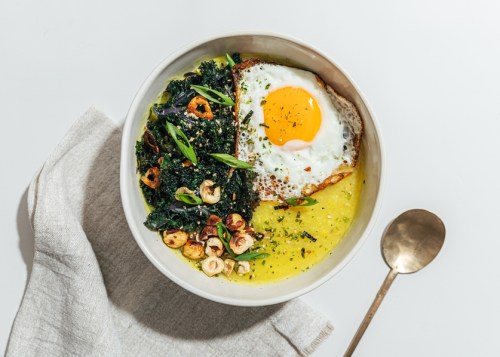
If there’s one thing you can focus on to improve your overall health on a daily basis, it’s finding ways to reduce inflammation in the body. After all, chronic inflammation can lead to fatigue, pain, mood disorders, and GI issues showing up in your day-to-day, and potentially chronic diseases like heart disease or arthritis in the long term.
Experts in This Article
registered dietitian and nationally-recognized food, nutrition, and wellness expert with a private nutrition counseling practice
While there is no magic bullet for fighting inflammation, there are lifestyle habits—such as improving sleep, keeping stress levels down, and following a nutrient-rich diet—that can help to combat it. Anti-inflammatory foods run the gamut (think: fatty fish rich in omega-3s, fresh produce, whole grains, legumes, nuts, and more), but one thing these ingredients tend to have in common is antioxidant capacity. One particularly potent food source of antioxidants that many experts agree can help reduce inflammation is turmeric, a deliciously potent spice.
What is it about turmeric that makes it so beneficial? It’s all about the curcumin, the main compound in turmeric and a strong antioxidant with anti-inflammatory properties, according to Samantha Cassetty, MS, RD, nutrition and wellness expert and co-author of Sugar Shock. “Curcumin has been studied for its ability to combat chronic conditions ranging from type 2 diabetes to heart disease to neurodegenerative diseases to joint conditions to mood disorders, and there’s promising research suggesting it may be beneficial for people with these conditions,” Cassetty says.
Learn more about the benefits of turmeric and circumin from an RD by checking out this video:
We’d be remiss to suggest that reaping the promising benefits of this power spice is quite as simple as just sprinkling a little bit on your meal and calling it good, however. As Robin Berzin, MD, previously told Well+Good, turmeric isn’t absorbed well on its own and it’s eliminated quickly from the body.
What if there was an easy step you could take that would increase the ability of your body to access the power of turmeric by magnitudes? Cassetty gave us the lowdown on the one thing you should always do when adding turmeric to your routine: Pair it with black pepper.
Better together: why you should always combine turmeric and black pepper
“Turmeric has poor bioavailability, meaning your body can’t tap into its so-called ‘superpowers’ because it doesn’t get absorbed well, and you metabolize and eliminate it quickly,” says Cassetty. That means that all those golden lattes you’re shelling out for might be going to waste if you’re not actually enjoying the flavor of them—at least from a financial standpoint. One workaround for this unfortunate reality is simple: Just add a pinch of black pepper to your turmeric-spiced food or beverage. The main active ingredient in black pepper is piperine, and it’s been shown to increase the bioavailability of circumin by a whopping 2,000 percent.
That said, does this mean that it’s totally pointless to add turmeric to your diet without the black pepper? Of course not. Cassetty says that she would never discourage someone from adding turmeric to a recipe, but that it’s probably not going to provide substantial benefits on its own. “Of course, turmeric is still an antioxidant-rich plant-based food, and when you include numerous types of these foods in your regular diet and limit the amount of heavily processed foods you eat, you can expect health benefits, including better sleep, better energy, and a lower risk of chronic diseases,” she says. To max out the anti-inflammatory benefits of this mighty spice, though, be sure to check labels of supplements and products to ensure they include the all-important inclusion of black pepper, and always combine the two in your homemade dishes.
And don’t be fooled: Black pepper is much more than just an add on. The pantry staple boasts health benefits of its own, including high antioxidant content. “Every day, our cells get damaged by free radicals, which are molecules produced through exposure to environmental toxins and everyday activities, such as metabolism and exercise,” says Cassetty. Foods rich in antioxidants, especially whole plant-based foods like black pepper, help balance the free radicals and prevent oxidative stress, which is associated with a slew of health problems from diabetes to certain cancers. “To benefit from antioxidant protection, aim for 75 percent plant foods every day. Sprinkling black pepper on your food counts!” she adds.
Turmeric and black pepper recipes to try
Turmeric and black pepper go together well from a taste perspective, so it’s easy enough to always add a dash of pepper to any recipes that call for turmeric.
1. Sprinkle them on sweet potatoes.
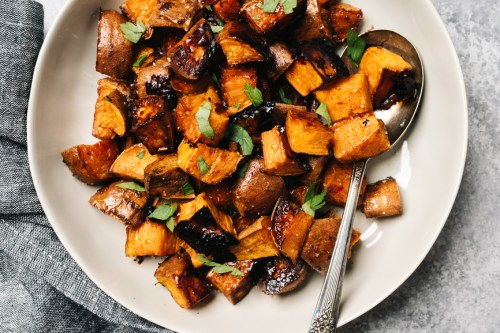
Try adding a sprinkle of the dynamic duo to basically any sweet potato recipe, from simple roasted sweet potatoes to this smoky sweet potato soup for an anti-inflammatory boost.
2. Cook turmeric-roasted cauliflower.
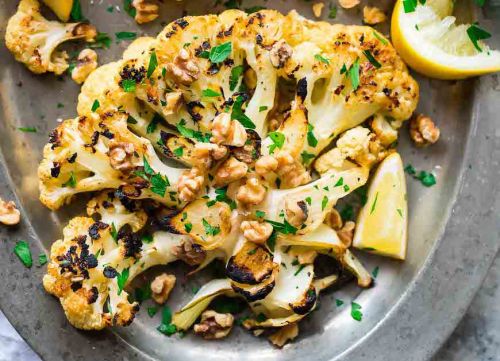
Cassetty recommends sprinkling turmeric and black pepper on top of this over-the-top delicious recipe for roasted turmeric cauliflower, which is sure to become a weeknight staple.
3. Stir up a mug of golden milk (made with black pepper).
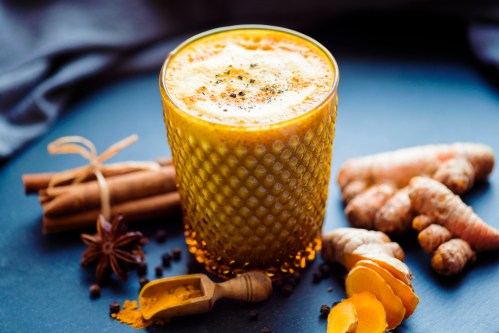
For a cozy mid-afternoon or after-dinner treat, try a warm mug of peppered-up golden milk—trust us, the black peppercorns add just the right amount of spice.
4. Sip ginger turmeric tea.
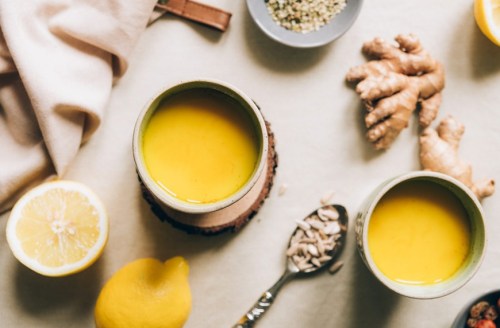
Looking for a ready-to-go product that has the power pairing? “Trader Joe’s actually makes a Ginger Turmeric Tea that lists black pepper as an ingredient. It’s delicious!” recommends Cassetty.
5. Whirl turmeric and black pepper into hummus.
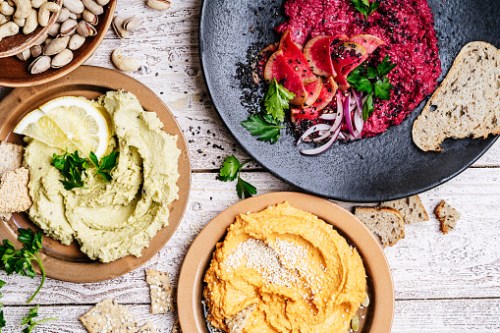
This one’s as easy to execute as it is delicious. Try stirring turmeric and black pepper into your favorite homemade hummus recipe or, in a pinch, into any store bought brand you love. If you refer to eat your chickpeas in full form, try tossing these roasted chickpeas with turmeric and black pepper for major flavor (and anti-inflammatory benefits).
Oh hi! You look like someone who loves free workouts, discounts for cutting-edge wellness brands, and exclusive Well+Good content. Sign up for Well+, our online community of wellness insiders, and unlock your rewards instantly.
Sign Up for Our Daily Newsletter
Get all the latest in wellness, trends, food, fitness, beauty, and more delivered right to your inbox.
Got it, you've been added to our email list.










